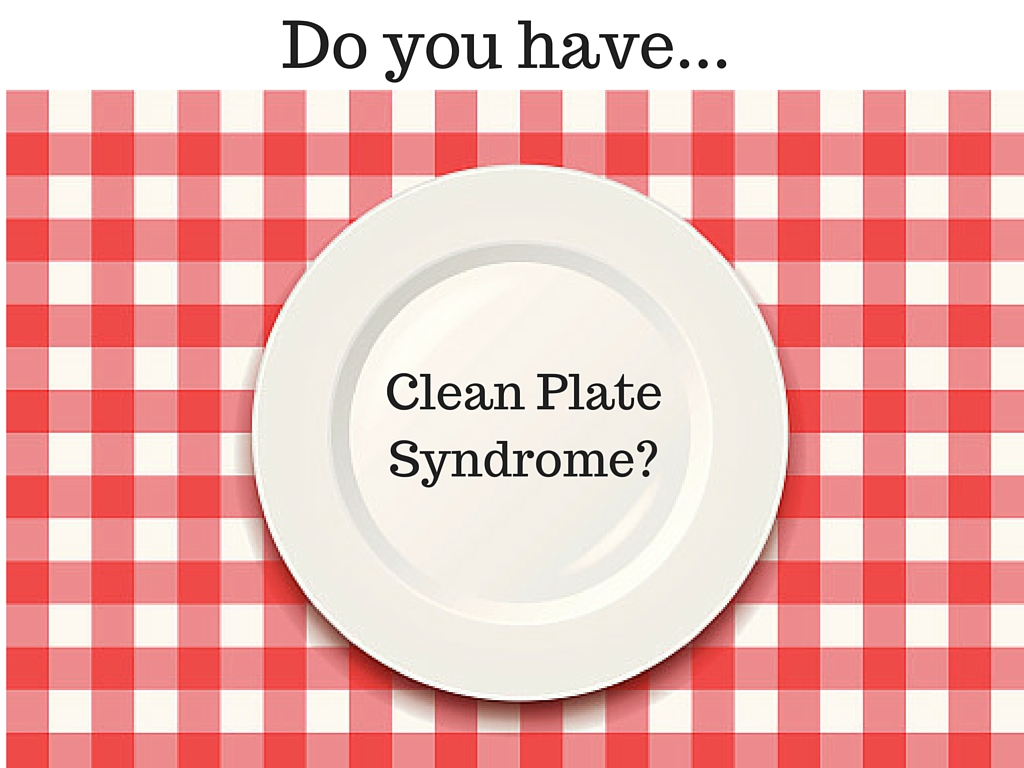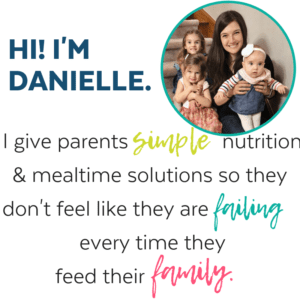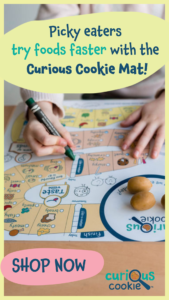I spend most of my time here talking about our little ones and the feeding challenges THEY have. Well, truth be told, I have my own issues at the table!
Over the years I’ve noticed (and others have pointed out) that I rarely, if ever, have any food scrapings left on my plate after a meal. I have a hard time putting my fork down, despite my belly being full. I’ve also been known to help friends and family finish off their unfinished meal.
I have a condition called Clean Plate Syndrome (or CPS). Note: Physicians and the like would not be familiar with this term, because I just made it up. 🙂
Clean plate syndrome: one feels the need to consume all food on their plate, regardless of whether he/she is fully satiated at a meal.
I was not born with CPS but I do remember distinctly when this behavior started.
As a child, I was always encouraged to eat everything on my plate.
As you might relate, I was often reminded that there were children starving in the world, so it would be rude to leave part of my meal untouched. At the time, I was too young to point out that this logic was flawed; malnourished children would not be better or worse off based on how much I ate.
I did as told and ate every last crump. Instead of listening to my body and responding accordingly, I often left the table feeling more uncomfortable than necessary.
Thirty-ish years later, I still struggle with portion sizes and knowing when to stop.
Why am I telling you this?
My desire to eat everything in sight likely goes back to the constant nudges to clean my plate as a child. The research also suggests that one’s feeding environment in the early years can strongly influence their feeding behavior, food preferences AND weight in later years. If we are pressured to eat brussel sprouts as a kid, chances are we will continue to grimace at them as an adult. If children are only given the foods parents think they will eat, then they will be less inclined to try new foods as an adult.
And get this, UNDERWEIGHT children are more likely to be OVERWEIGHT as adults (because they are encouraged to eat more than their body needs). This one hit home with me as a mother to a little girl who is underweight (due to a genetic condition that limits her growth potential).
I’m super passionate about working with picky eaters, problem feeders, and their parents for 2 main reasons:
- I know how emotionally draining it is to watch our little ones pick over their food and worry about their nutrition.
- I know that how we feed our little ones today can dictate their future relationship with food.
I also know that putting an end to picky eating can be done. There are really simple solutions that are proven to work with most children, even some of the pickiest. The key is to address it early using strategies that will be beneficial in the long run (and avoid common strategies that will exacerbate the pickiness).
I cover all of this and so much more in the Picky Eater Protocol.

If you’re ready to start enjoying mealtimes and stop worrying about how much and what your little one is eating, this program might be just what you and your family need. 🙂 Click on the image above to learn more!






